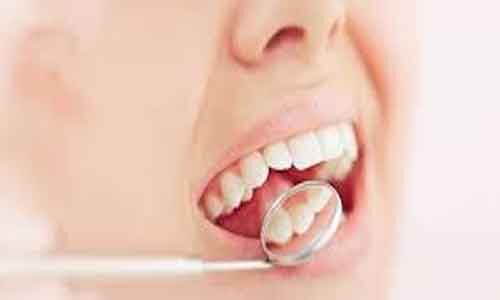- Home
- Medical news & Guidelines
- Anesthesiology
- Cardiology and CTVS
- Critical Care
- Dentistry
- Dermatology
- Diabetes and Endocrinology
- ENT
- Gastroenterology
- Medicine
- Nephrology
- Neurology
- Obstretics-Gynaecology
- Oncology
- Ophthalmology
- Orthopaedics
- Pediatrics-Neonatology
- Psychiatry
- Pulmonology
- Radiology
- Surgery
- Urology
- Laboratory Medicine
- Diet
- Nursing
- Paramedical
- Physiotherapy
- Health news
- Fact Check
- Bone Health Fact Check
- Brain Health Fact Check
- Cancer Related Fact Check
- Child Care Fact Check
- Dental and oral health fact check
- Diabetes and metabolic health fact check
- Diet and Nutrition Fact Check
- Eye and ENT Care Fact Check
- Fitness fact check
- Gut health fact check
- Heart health fact check
- Kidney health fact check
- Medical education fact check
- Men's health fact check
- Respiratory fact check
- Skin and hair care fact check
- Vaccine and Immunization fact check
- Women's health fact check
- AYUSH
- State News
- Andaman and Nicobar Islands
- Andhra Pradesh
- Arunachal Pradesh
- Assam
- Bihar
- Chandigarh
- Chattisgarh
- Dadra and Nagar Haveli
- Daman and Diu
- Delhi
- Goa
- Gujarat
- Haryana
- Himachal Pradesh
- Jammu & Kashmir
- Jharkhand
- Karnataka
- Kerala
- Ladakh
- Lakshadweep
- Madhya Pradesh
- Maharashtra
- Manipur
- Meghalaya
- Mizoram
- Nagaland
- Odisha
- Puducherry
- Punjab
- Rajasthan
- Sikkim
- Tamil Nadu
- Telangana
- Tripura
- Uttar Pradesh
- Uttrakhand
- West Bengal
- Medical Education
- Industry
Desensitization technique effective in reducing tactile hypersensitivity in elderly: Study

Oral tactile hypersensitivity (TH) is characterized by aberrations in the perception of oral stimuli. Oral tactile hypersensitivity is also associated with a decline in ingestion and swallowing function. Technique for mitigating hypersensitivity can effectively mitigate TH, suggests a recent study published in the Journal of Dental Sciences.
Oral health care provision in long-term care settings is often limited by specific behaviors exhibited by residents, which may be interpreted as a refusal of care. Such behaviors can be attributed to oral tactile hypersensitivity.
Oral tactile hypersensitivity is defined as the response elicited when an afflicted area is touched; this may include spasms occurring either locally or systemically throughout the body. Within the oral cavity, Oral tactile hypersensitivity is characterized by facial distortion and an inability to open the mouth due to the stiffening of the lips and facial muscles; this is often interpreted as a refusal of oral care and food intake.
Therefore, Maki Shirobe and colleagues from the Tokyo Metropolitan Support Center for Preventative Long-term and Frail Elderly Care, Tokyo Metropolitan Institute of Gerontology, Tokyo, Japan conducted a study to examine the effectiveness of a technique for mitigating TH (TMH) among institutionalized older persons.
In this study, 18 institutionalized older persons (Mean age, 90.6 ± 4.5 years; 92.9% females) with TH were randomized to a control group or an intervention group. Pre- and post-intervention assessments were conducted for seven participants in each group.
Routine oral care was provided by the facility's staff in both groups. TMH in the intervention group was performed by a dental hygienist over a 3-month period.
The authors observed that the number of areas with TH was significantly reduced (P = 0.027) in the intervention group. Furthermore, no significant change was observed in the control group.
Hence, it was concluded that TMH can effectively mitigate Oral tactile hypersensitivity. It was also observed that the findings provide clinicians with an additional treatment option for hypersensitivity in older patients.
However, additional long-term studies with larger sample sizes are required to confirm the effectiveness of this technique.
Dr. Nandita Mohan is a practicing pediatric dentist with more than 5 years of clinical work experience. Along with this, she is equally interested in keeping herself up to date about the latest developments in the field of medicine and dentistry which is the driving force for her to be in association with Medical Dialogues. She also has her name attached with many publications; both national and international. She has pursued her BDS from Rajiv Gandhi University of Health Sciences, Bangalore and later went to enter her dream specialty (MDS) in the Department of Pedodontics and Preventive Dentistry from Pt. B.D. Sharma University of Health Sciences. Through all the years of experience, her core interest in learning something new has never stopped. She can be contacted at editorial@medicaldialogues.in. Contact no. 011-43720751
Dr Kamal Kant Kohli-MBBS, DTCD- a chest specialist with more than 30 years of practice and a flair for writing clinical articles, Dr Kamal Kant Kohli joined Medical Dialogues as a Chief Editor of Medical News. Besides writing articles, as an editor, he proofreads and verifies all the medical content published on Medical Dialogues including those coming from journals, studies,medical conferences,guidelines etc. Email: drkohli@medicaldialogues.in. Contact no. 011-43720751


